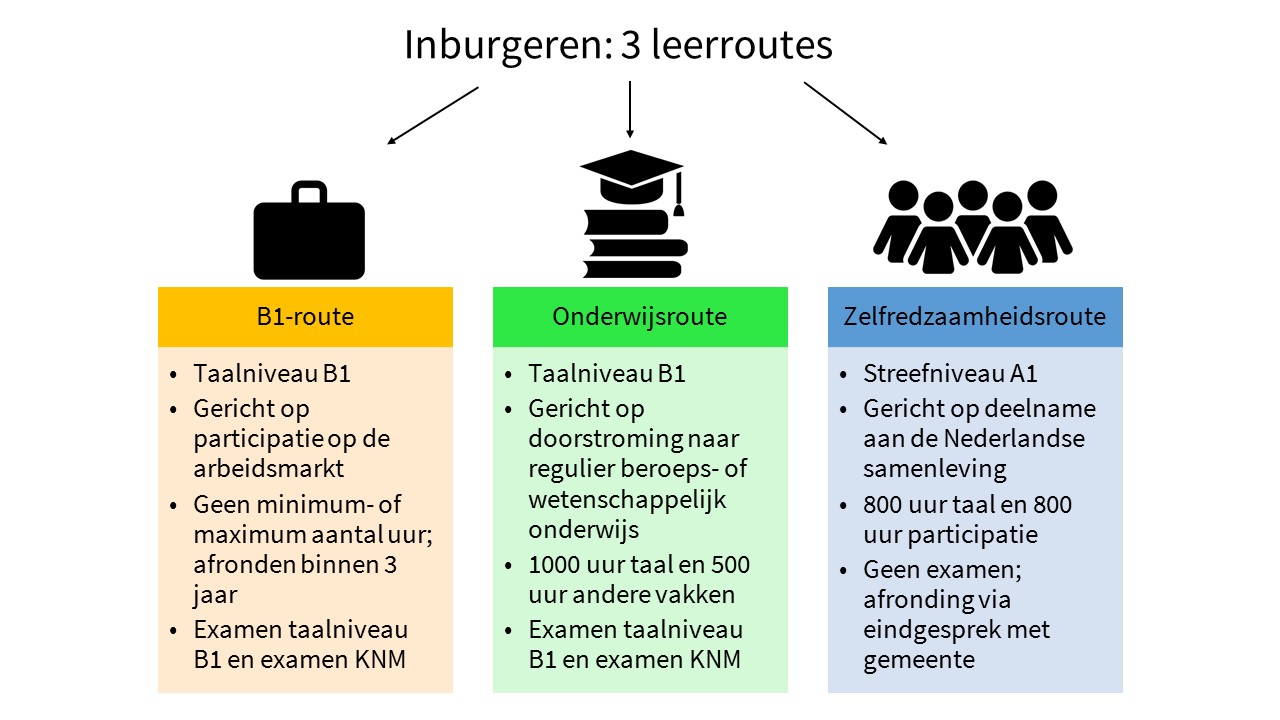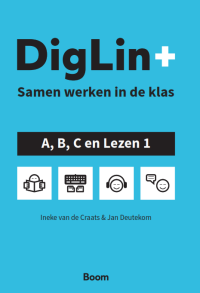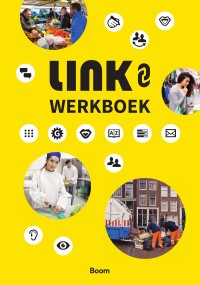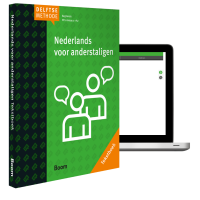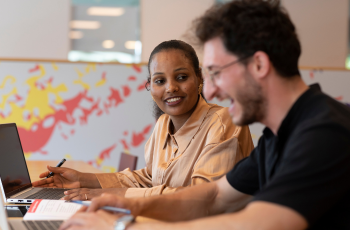The three learning pathways
Funding
It costs money to integrate. Family migrants and other migrants with insufficient financial means to pay for an integration course or exam are eligible for a loan of up to 10,000 euros from the Dienst Uitvoering Onderwijs (DUO). For status holders, this possibility will disappear. In the new civic integration system, the municipality is responsible for completing and paying for their full civic integration offer.
The B1 route
This route aims at mastering the Dutch language at language level B1 or higher as soon as possible and increasing the perspective on the labour market.
It is expected that the majority of the persons with a duty of civic integration will go through this route. The target group is very diverse and therefore no minimum or maximum number of teaching hours have been assigned to this route.
If it turns out after considerable effort that language level B1 is not feasible, it is possible to take (parts of) the civic integration exam at language level A2.
To successfully complete the B1 route, the person obliged to integrate must pass:
- The language exam at language level B1 or higher, or after considerable efforts at language level A2, on the components Reading, Listening, Writing and Speaking
- The exam for the module Kennis van de Nederlandse Maatschappij (KNM)
Everyone who has to integrate must also take two exams that deal with knowledge of Dutch society: the KNM exam and the MAP.
The self-reliance route
This route focuses on mastering the Dutch language at the highest possible language level so that this target group can eventually participate independently in Dutch society.
The target level of the Z-route is the target level A1. This learning route is meant for persons with a duty of civic integration with a low learning capacity who are expected to have a lot of difficulty learning the Dutch language. These include persons with a duty of civic integration who have had little or no schooling in their country of origin. The programme consists of two parts: at least 800 hours of Dutch language lessons under the guidance of an NT2 teacher and at least 800 hours of participation activities (this includes hours for the Module Arbeidsmarkt en Participatie (MAP) and the Participatieverklaringstraject). These activities are completed by municipalities.
To successfully complete the Z-route, a compulsory final interview takes place with the municipality. Based on this interview, the municipality decides whether the person with a duty of civic integration has fulfilled the agreements drawn up in the (PIP).
Deviating from the chosen learning route
If the person obliged to integrate makes insufficient or, on the contrary, more progress than expected on the basis of the PIP, the municipality can choose to deviate from the chosen learning route.
This can be done up to one and a half years after the start of the integration period. It is also possible, after considerable effort, to scale down from level B1 to level A2 in the B1 route. The person with a duty of civic integration must then have followed at least 600 hours of language lessons with a provider approved by Blik op Werk (BoW) and have shown sufficient effort during the civic integration to learn the Dutch language. The municipality itself determines how it is determined whether the person obliged to integrate has made sufficient effort. If the learning route is changed or there is scaling down within the B1 route, a new PIP must be drawn up. Scaling down is not possible in the Onderwijsroute and in the Zelfredzaamheidsroute.
Source: Divosa, 2020, Wijzigingenoverzicht nieuwe Wet inburgering

